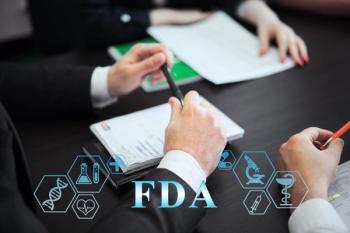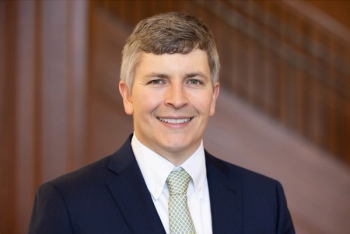
Developing Mindful Pharma Leaders
Mindfulness is a key factor in enhancing productivity and success in clinical development leaders and the entire pharmaceutical industry.
The benefits of mindfulness have been studied extensively, both in the lab and in the field. In particular, the benefits of applying its principles and practices in the business world-from fostering thoughtful leadership to enhancing organizational productivity and strategic decisions-have been a robust area of exploration over the last decade.
Large companies, including Aetna, Intel, McKinsey, Genentech, and General Mills, among many others, have collaborated with mindfulness leaders like Dr. Jon Kabat-Zinn to implement mindfulness programs in the workplace. In many ways, the tech industry has been a trailblazer: Chade-Meng Tan developed the now-famous Search Inside Yourself program while at Google-a program that has since been implemented by numerous companies across the globe. The sports world has also embraced mindfulness, in the form of meditation: Michael Jordan, Shaquille O’Neal, and Kobe Bryant-all titans of the NBA-have each consulted sports psychologist and mindful meditation teacher George Mumford to improve their performance.
Could a mindfulness program have a measurable impact in the pharmaceutical industry?
In 2014, Otsuka Pharmaceutical Development and Commercialization (OPDC), having just had its first successful filing for Abilify Maintena®, was looking for ways to help the organization manage an increased portfolio demand with ambitious timelines. Dr. Raymond Sanchez, Sr. VP of Global Clinical Development, became interested in mindfulness as a potential way to enhance performance, increase creativity, maintain objectivity in decision-making and conflict management, and support “people development” within the company.
“We wanted to continue the motivated passion of those in the field to develop novel therapeutics to address unmet medical needs,” Dr. Sanchez explained. “This development would enhance company values and allow personal and psychological health benefits for employees living in our global environment of innovation, change, and drug development challenges. We spend lots of money on the development of new drugs-clinical trials and research-but need to spend more time and effort on developing the leaders and teams who support these endeavors.”
Consequently, the question at OPDC became: “What if we focused, not only on the ‘doing’ of leadership, but also on the ‘being’ of it?” What makes a leader successful? That question of ‘being’ successful leaders became the heart of an in-house mindfulness study initiated by Janet Matts in our New Jersey offices.
The initial group consisted of eight passionate senior medical leaders-MD and PhD researchers with experience, flexibility, and a desire to grow their leadership capabilities across the organization-and an external consultant. The vision of the group was to “create a world-class clinical development organization that provides leadership and innovative approaches to the development and delivery of novel therapies on time and on budget, to improve human health worldwide.” They decided to approach this goal using mindfulness in two complementary ways (both in tandem).
- Monthly mindfulness sessions: These included guided meditations, stretches/yoga postures and a healthy community ‘mindful lunch.’ This was a voluntary (not mandatory) practice.
- Monthly one-on-one executive coaching: This focused on leadership development and creating an individual, actionable mindfulness practice. The benefits of this strategy, which was mandatory, included greater integration of mindfulness into the personal and professional development of each participant.
The monthly mindfulness sessions provided a “thoughtful space” to quiet participants’ minds and enhance their individual behaviors. It also encouraged them to frequently consider the type of leader they were. At the same time, the individualized executive coaching sessions provided an opportunity to actualize a daily mindfulness practice within a busy schedule.
Some participants were eager to partake while others had a “wait and see” approach and were convinced to join the practice after witnessing the success of the initial group over time. As such, the sessions increased in enrollment over several months.
Key success factors
The hope to develop successful leaders who would influence the organization in positive ways drove development of these ongoing mindfulness initiatives. A summary of critical success factors for implementing a mindfulness focus is provided in Figure 1.
Strong leaders exhibit certain fundamental characteristics: they lead by example, focus on priorities, and consider people development as critical to the organization. More specifically, these qualities include:
- Senior, visible role that engages in leadership development within the organization
- Viewing oneself as a change agent
- Maximizing creativity
- Paying attention to practicality as a person
- Being energetic and forward-thinking
- Caring about the development of people, to ensure a well-rounded approach for maximizing successful physical, mental, and spiritual outcomes
It was also important that the mindfulness practice grow organically, initially by early adopters and then spreading to others in the organization after witnessing its success. This ‘Do a Little, Learn a Lot’ attitude allows a novel program to spread on its own throughout the organization. Early adopters are seen as curious and pioneering, which piques curiosity in others and encourages their participation over time.
Focusing on techniques that support stress reduction is another important priority in our global environment of innovation, change, and drug development challenges.
Measuring success
For the initiative’s success, it was important to link these practices to meeting the goals inherent to our business, specifically, the leading of development teams, achievement of innovation goals, and enhancement of key aspects of the company culture.
The impact of the ongoing mindfulness practices-on both personal measures as well as business metrics-were documented over time. Some especially telling testimonials from participants were:
- “By taking the time to create mindful outcomes and visualize success, my meetings are much more successful.”
- “Conflicts are easier to deal with when I am aware of my emotions and can mindfully pay attention to their outcomes.”
- “Hmm…that is a ‘trigger’ for me, so do I choose to respond in the same way that I always have? I can change that choice!”
- “When I pay attention for ‘being’ rather than ‘doing,’ I have much greater emotional control.”
- “When I am ‘in the now,’ my creative juices flow easier.”
- “If I stay mindful, I have less anxiety, and more focus and creativity.”
- “My creativity is heightened, and my objectivity is maintained when making decisions.”
- “I can be a better leader, and a better dad at home when I am ‘tuned into’ being present for whatever place I am in.”
- “I understand that as an introvert, my initial response is sometimes not to respond. Being more mindful has taught me that the leadership role that I play requires me to ‘step up,’ even if my preference is to hold back. This has allowed my leadership insights to be heightened.”
On the business side, results-outlined below-show the evolution of OPDC’s central nervous system (CNS) development programs (Figure 2). We found substantial increases in professional achievements for those involved in the mindfulness practices.
The Abilify® team worked together to gain approval for five new indications, in addition to approval for the first ever Digital Medicine NDA. The Rexulti® team completed 56 clinical trials with approximately 12,000 patients, resulting in an NDA and approval for dual indications: schizophrenia and major depressive disorder.
The return on investment (ROI) for mindfulness practices provided strong evidence of success. The mindfulness initiative group has had prolific results with a handful of CNS leaders. The group overall has had low turnover, a highly productive attitude, and unparalleled results in the organization. Late in 2015, the group was expanded by five people to include all clinical development leaders, not only CNS. Additional results include the recent approval of Samsca®.
As interest in the mindfulness program has continued to grow, Janet Matts suggested adding a third element: education on mindfulness research at the team’s ongoing off-site leadership development meetings, to reinforce the principles and efficacy of mindfulness with research validation. So, at meetings in March 2017 and April 2018, Dr. Ellen Slawsby, from Massachusetts General Hospital, shared her research findings on the benefits of mindfulness and its applications, from chronic pain, to overall health and wellness (i.e., stress reduction and sleep, diet and exercise improvements). In addition, the work of Michael Carroll (author of Awake at Work and The Mindful Leader: Awakening Your Natural Management Skills Through Mindfulness Meditation), Jon Kabat-Zinn, and others were introduced in the monthly practices, to keep those sessions diverse by highlighting new ways to practice mindfulness.
Applying a multi-faceted mindfulness practice in a disciplined and thoughtful way can bring significant results, including a more integrated work-life balance for those in a demanding clinical development environment (Box 1). A part of this process since its initial inception, Tim Peters-Strickland, VP CNS Drug Development and Digital Medicine, noted, “I have experienced many important benefits; not only professionally, but personally as well. How many other practices can give you an ongoing opportunity to stay focused and make critical decisions in the busy and demanding world of drug development?”
It is our hope that sharing this in-the-field study of mindfulness practices in a pharmaceutical company will be a pathway for others in the drug development arena to become aware of the benefits and effectiveness of such practices. Further, we hope that other companies will implement practices like those outlined here to promote the growth of clinical development leaders and enhance their productivity and success.
References
- Carroll, Michael. The Mindful Leader, Awakening Your Natural Management Skills Through Mindfulness Meditation. Trumpeter; 2007.
- Carroll, Michael. Awake at Work: 35 Practical Buddhist Principles for Discovering Clarity and Balance in the Midst of Work’s Chaos. Shambhala Publications, Inc.; 2004.
- Chade-Meng Tan. Search Inside Yourself: Increase Productivity, Creativity and Happiness. MLBD; 2012.
- Friedland, Daniel. Leading Well From Within, a Neuroscience and Mindfulness-Based Framework for Conscious Leadership. SuperSmartHealth; 2016.
- Harris, Dan. 10% Happier: How I Tamed the Voice in My Head, Reduced Stress Without Losing My Edge, and Found Self-Help That Actually Works – A True Story. Dey Street Books; 2014.
- Kabat-Zinn, Jon. Mindfulness for Beginners, Reclaiming the Present Moment and Your Life. Sounds True Inc.; 2012.
- Kofman, Fred. Conscious Business: How to Build Value Through Value. Sounds True, Inc.; 2013.
- Oliver, Joan Duncan, editor. Commit to Sit, Tools for the Cultivation of a Meditation Practice…From the pages of Tricycle: The Buddhist Review. Hay House, Inc.; 2009.
- Salzberg, Sharon. Real Happiness at Work…Meditations for Accomplishment, Achievement and Peace. Workman Publishing Company, Inc.; 2014.
Raymond Sanchez, M.D., Senior Vice President, Global Clinical Development, OTSUKA Pharmaceutical Development & Commercialization
Timothy Peters-Strickland, MD, Vice President, Global Clinical Development, CNS and Digital Medicine, OTSUKA Pharmaceutical Development & Commercialization
Janet Matts, Founding Principal of Janet B. Matts, LLC
Newsletter
Lead with insight with the Pharmaceutical Executive newsletter, featuring strategic analysis, leadership trends, and market intelligence for biopharma decision-makers.




